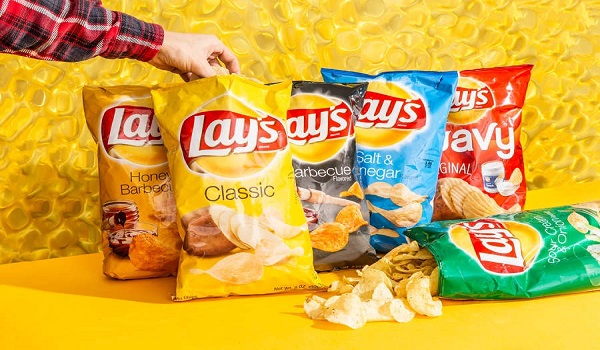PepsiCo India is testing a new blend of sunflower oil and palmolein for its popular Lay’s potato chips in response to criticism over the use of palm oil, a cheaper but less healthy ingredient, in packaged foods. This move aims to align with healthier standards and address consumer concerns.
In the United States, PepsiCo uses heart-healthy oils like sunflower, corn, and canola oil for Lay’s. According to PepsiCo’s US website, these oils contain beneficial mono- and polyunsaturated fats that can help lower bad cholesterol (LDL) and maintain good cholesterol (HDL) as part of a balanced diet.
A PepsiCo India spokesperson highlighted that the company is one of the few in the Indian food industry to trial such a blend. Palmolein, derived from palm oil, is often criticized for its health impacts, leading to increased scrutiny and demands for healthier alternatives.
In addition to changing its oil blend, PepsiCo India is working to reduce the salt content in its snacks. By 2025, the company aims to lower sodium levels to less than 1.3 mg per calorie. This initiative is part of PepsiCo’s broader commitment to healthier products.
PepsiCo India’s Vice President stated, “We will increase our presence in South India, doubling our sales outlets to 50 lakhs from the current 26 lakh within the next year, with a focus on tier II and III cities and rural markets.” The company, currently dominant in North and East India, is expanding its footprint to the South and West.
The company is also focusing on maintaining its leadership in the hard-boiled candy and Indian ethnic confectionery segments while expanding into new areas like chocolate. This strategic move aims to enhance its market position and drive innovation in its product offerings.
As part of its sustainability efforts, PepsiCo India has deployed over 800 electric vehicles for product distribution, with plans to increase this number.
PepsiCo India’s initiatives come amid widespread criticism from nutritionists and health advocates, who argue that multinational companies use cheaper, less healthy ingredients in developing countries compared to developed markets. For example, Nestle India recently announced a no-added-sugar variant of Cerelac following backlash over high sugar levels in its products for Asian and African markets.
Apart from Lay’s, PepsiCo India’s product portfolio includes Doritos, Kurkure, and Quaker. The company has set a goal that by 2025, at least 75% of its food portfolio volume will not exceed 1.3 mg of sodium per calorie, making significant progress towards this target.
India, the largest importer of palm oil, primarily sources it from Indonesia, Malaysia, and Thailand. The country’s palm oil consumption reached 8.9 million metric tonnes in FY23.
This new initiative by PepsiCo India represents a significant step towards healthier and more sustainable food production practices, reflecting the growing consumer demand for transparency and better nutritional standards in packaged foods.


